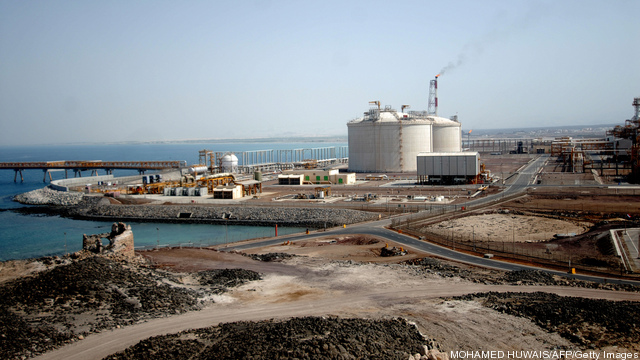Two separate but related news items last week demonstrate the economic promise and geopolitical significance of America’s natural gas export opportunity.
The first headline, “U.S. LNG Set to Hit Global Market,” signifies a landmark moment in America’s trajectory from energy scarcity to abundance. The export facility covered in the article – Cheniere Energy’s Sabine Pass in Cameron Parish, La. – actually opened as a liquefied natural gas (LNG) import terminal in 2008. Just two years later in September 2010, it became the first U.S. facility to apply for a Department of Energy permit to export LNG. After a decade that saw U.S. natural gas production jump 45 percent – and following an extensive review process – Sabine Pass is set to ship its first cargo to Europe.
Based on another headline from the same day, “Europe Seeks Alternatives to Russian Gas Imports,” the shipment will arrive not a moment too soon for U.S. allies. At a news conference announcing the European Union’s new initiative to “reduce reliance on Russian natural gas as the two sides face off over a litany of geopolitical disputes, from the conflict in Ukraine to the civil war in Syria,” Commissioner Miguel Arias Cañete said that “with political tensions on our borders still on a knife edge,” European nations “are still far too vulnerable” to supply disruptions. The sentiment echoes earlier pleas for U.S. energy from the ambassadors of Hungary, Poland, Slovakia and the Czech Republic, who told Congress, “Energy security is not only a day-to-day issue for millions of citizens in our region, but it is one of the most important security challenges that America’s allies face in Central and Eastern Europe today.”
In this case, what’s good for our allies’ security is good for our security – and our economy. LNG exports could contribute up to 452,000 jobs nationwide between 2016 and 2035 and add up to $73.6 billion annually to the GDP, according to an ICF International study. While a handful of LNG export facilities have made it through the multi-step government review process, many remain stuck in bureaucratic limbo. Meanwhile, more than 48 LNG export projects are planned or under construction in other nations competing in the global race to secure a prominent share of the market.
The abundance of U.S. natural gas is already driving down domestic carbon emissions and costs for home heating and electricity. Policies currently pending in Congress to expedite and establish greater certainty in the LNG export permitting process are essential to further capitalize on our position as the world’s leading natural gas producer.
By Jack Gerard
Originally posted February 24, 2016
Energy Tomorrow is brought to you by the American Petroleum Institute (API), which is the only national trade association that represents all aspects of America’s oil and natural gas industry. Our more than 500 corporate members, from the largest major oil company to the smallest of independents, come from all segments of the industry. They are producers, refiners, suppliers, pipeline operators and marine transporters, as well as service and supply companies that support all segments of the industry.

